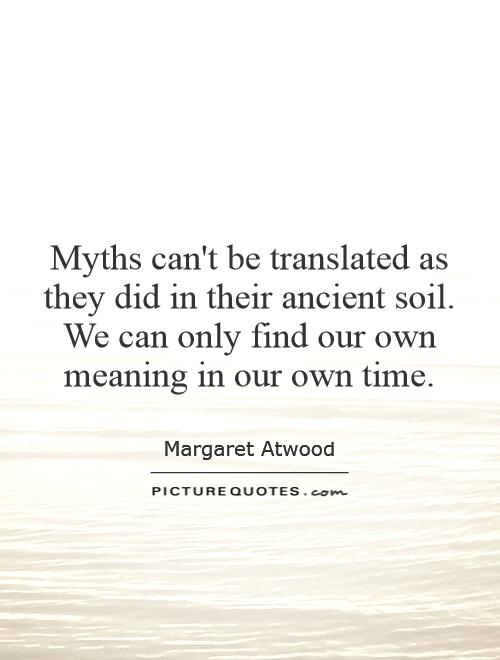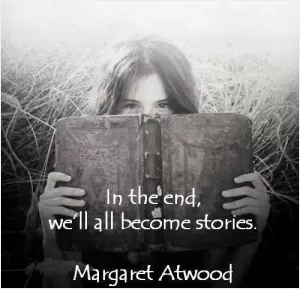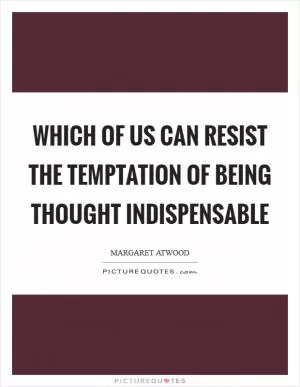Myths can't be translated as they did in their ancient soil. We can only find our own meaning in our own time

Myths can't be translated as they did in their ancient soil. We can only find our own meaning in our own time
Margaret Atwood, a renowned Canadian author known for her thought-provoking and feminist works, often explores the themes of mythology and storytelling in her writing. In her novel "The Penelopiad," Atwood reimagines the myth of Penelope, the wife of Odysseus, giving voice to a character who has long been overshadowed by her husband's heroic exploits. Through this retelling, Atwood challenges the traditional narratives of Greek mythology and invites readers to reconsider the roles and perspectives of women in these ancient stories.Atwood's approach to mythology aligns with the idea that myths cannot be translated directly from their ancient soil to our modern context. Instead, she suggests that we must find our own meaning in these stories, interpreting them through the lens of our own time and experiences. By reinterpreting myths and giving voice to marginalized characters, Atwood demonstrates the power of storytelling to shape and reshape our understanding of the past.












 Friendship Quotes
Friendship Quotes Love Quotes
Love Quotes Life Quotes
Life Quotes Funny Quotes
Funny Quotes Motivational Quotes
Motivational Quotes Inspirational Quotes
Inspirational Quotes